Search Results
Showing results 1 to 20 of 33
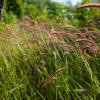
Habitat Observations
Source Institutions
In this outdoor activity, learners discover the wonders of the habitat surrounding them.
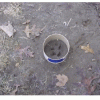
Makin' Tracks
Source Institutions
In this activity, learners make plaster casts of an animal track to learn more about animals and animal behavior.
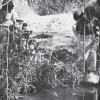
Crawdad Grab
Source Institutions
In this outdoor, freshwater activity, learners explore the behavior and food preferences of crawdads (or crabs) by "fishing" for them with various baits.

Changing Shadows
Source Institutions
In this sunny day, outdoor activity, learners observe changes in shadows over time. The activity also helps to develop a sense of the Earth's motion.

Sun Prints
Source Institutions
This activity uses a special paper that can create images with exposure to the Sun. Collect objects of different shapes and sizes and use them to make interesting patterns on your sun print.

Pitch, Roll and Yaw: The Three Axes of Rotation
Source Institutions
In this activity (page 87 of the PDF), learners move their bodies to better understand the three axes of rotation: pitch, roll and yaw.
Disappearing Water
Source Institutions
In this outdoor water activity, learners explore evaporation by painting with water and tracing puddles. Learners will discover that wet things become dry as the water evaporates.
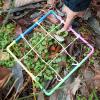
Counting With Quadrants
Source Institutions
Millions of organisms can live in and around a body of water.
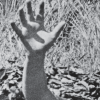
Leaf Living
Source Institutions
In this outdoor fall activity, learners find out what living in or under a layer of leaves is like.

Telescope Treasure Hunt
Source Institutions
This hands-on astronomy activity lets learners hunt for different objects in the night sky that contribute to stellar and planetary formation, using a Treasure List.
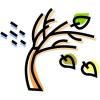
Where Does the Wind Blow?
Source Institutions
In this activity, learners investigate wind by comparing the force of wind in different locations. Learners build wind-o-meters out of wooden sticks and strips of paper.
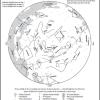
Where Are the Distant Worlds? Star Maps
Source Institutions
This fun hands-on astronomy activity lets learners use star maps (included) to find constellations and to identify stars with extrasolar planets (Northern Hemisphere only, naked eye).

Observing Earthworm Locomotion
Source Institutions
In this activity, learners collect worms and then observe how they move.
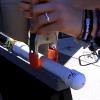
A Spray Spree
Source Institutions
In this activity, learners explore water pressure by conducting an experiment with a garden hose. Learners build a testing apparatus and create PVC nozzles with different sized holes.
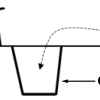
Hunting Minibeasts
Source Institutions
In this activity (p.6-10 of PDF), learners use different methods for hunting minibeasts (bugs). Learners can either make traps or simply look for minibeasts under stones and logs.
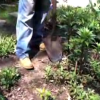
Lilliputian Landscaping
Source Institutions
In this activity, learners examine the different materials gardeners add to their soil, and discuss how these materials are important for plant growth.
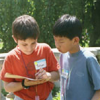
Colors in Nature
Source Institutions
In this activity, learners create colorful bead bracelets to wear outside while searching for matching colors in plants. Learners will be surprised by the variety of colors in nature.
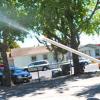
PVC Water Squirter
Source Institutions
In this activity, learners build a water squirter using a PVC pipe, dowel, and foam. This activity is great for the summer time and introduces learners to forces and water pressure.

Earth Walk
Source Institutions
In this hands-on and feet-on excursion, learners take a science walk to visualize the planet's immense size and numerous structures, without the usual scale and ratio dimensions found in most textbook

The Blindfolded Walk
Source Institutions
In this activity, learners work in teams to study the observation skills essential to scientific research.
